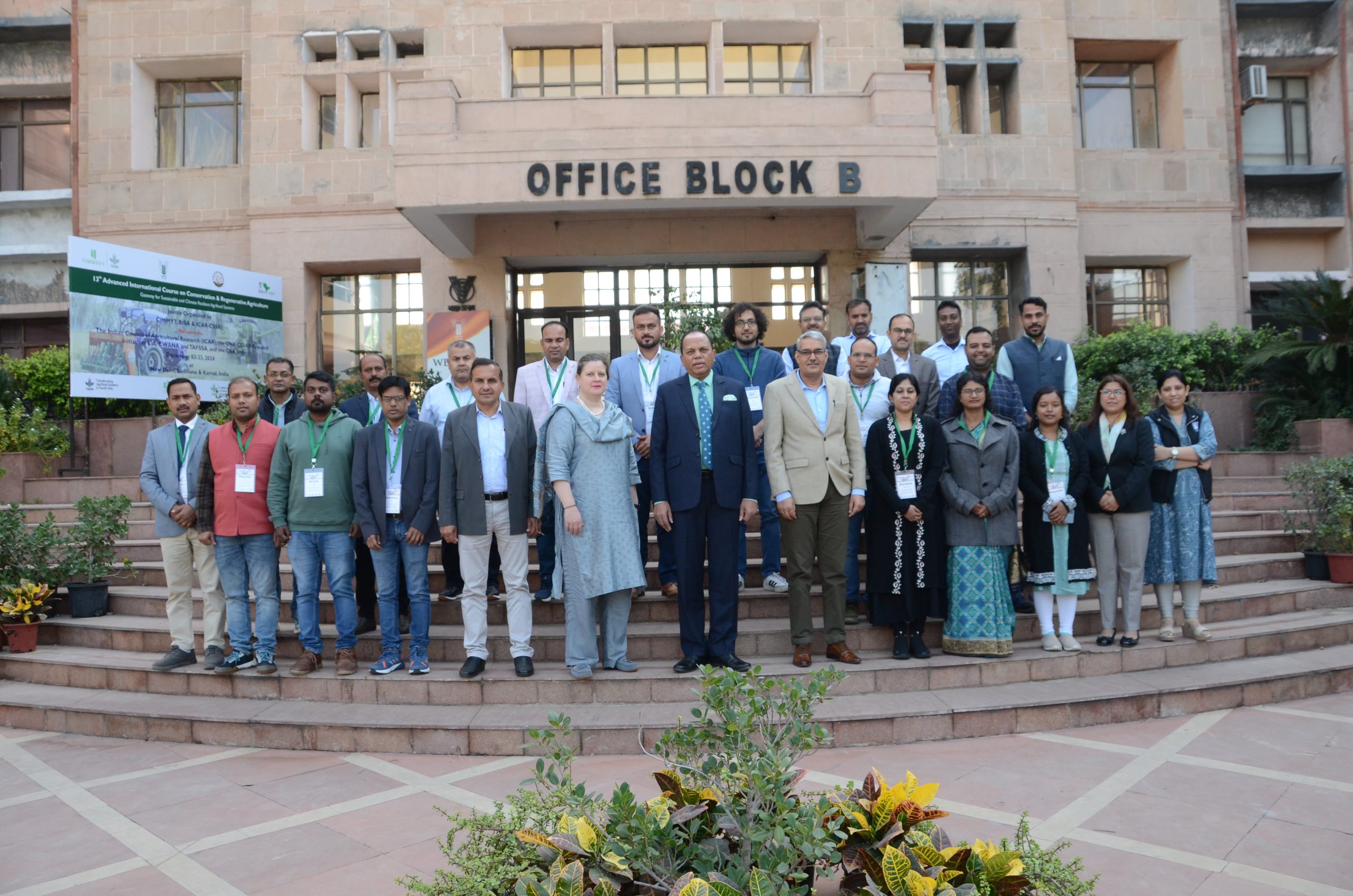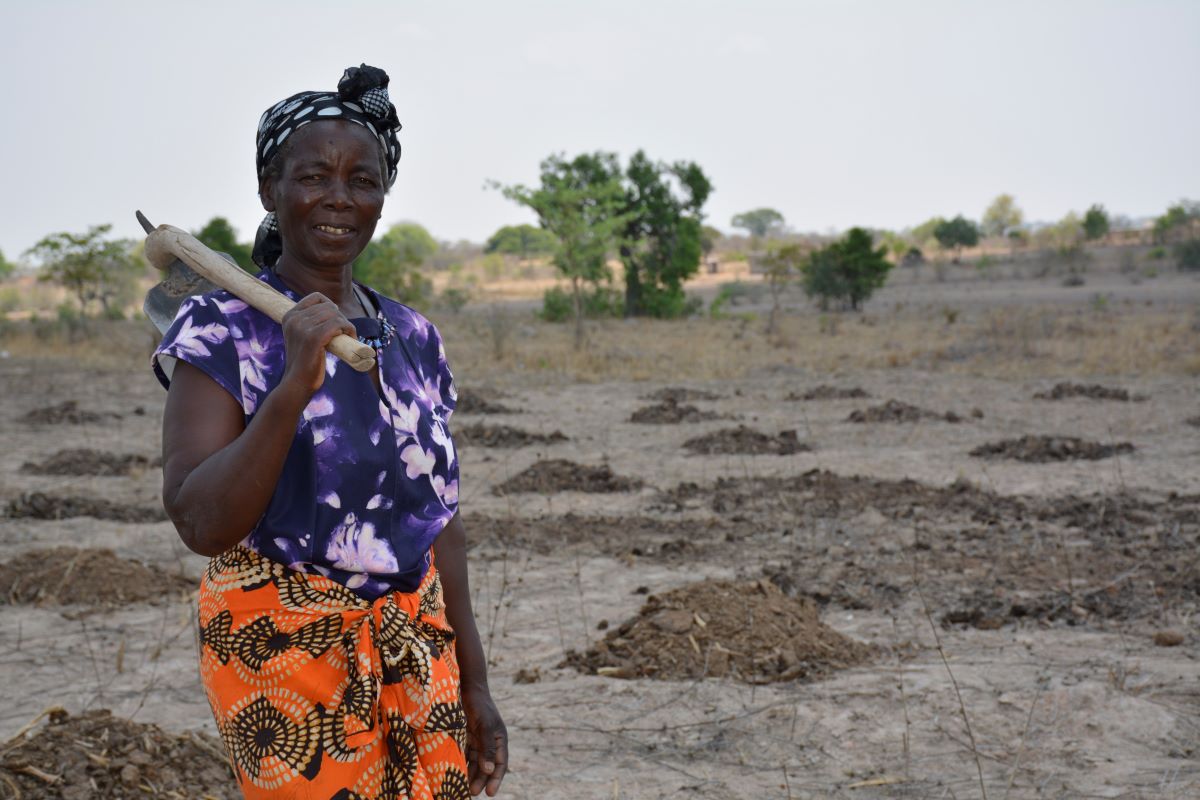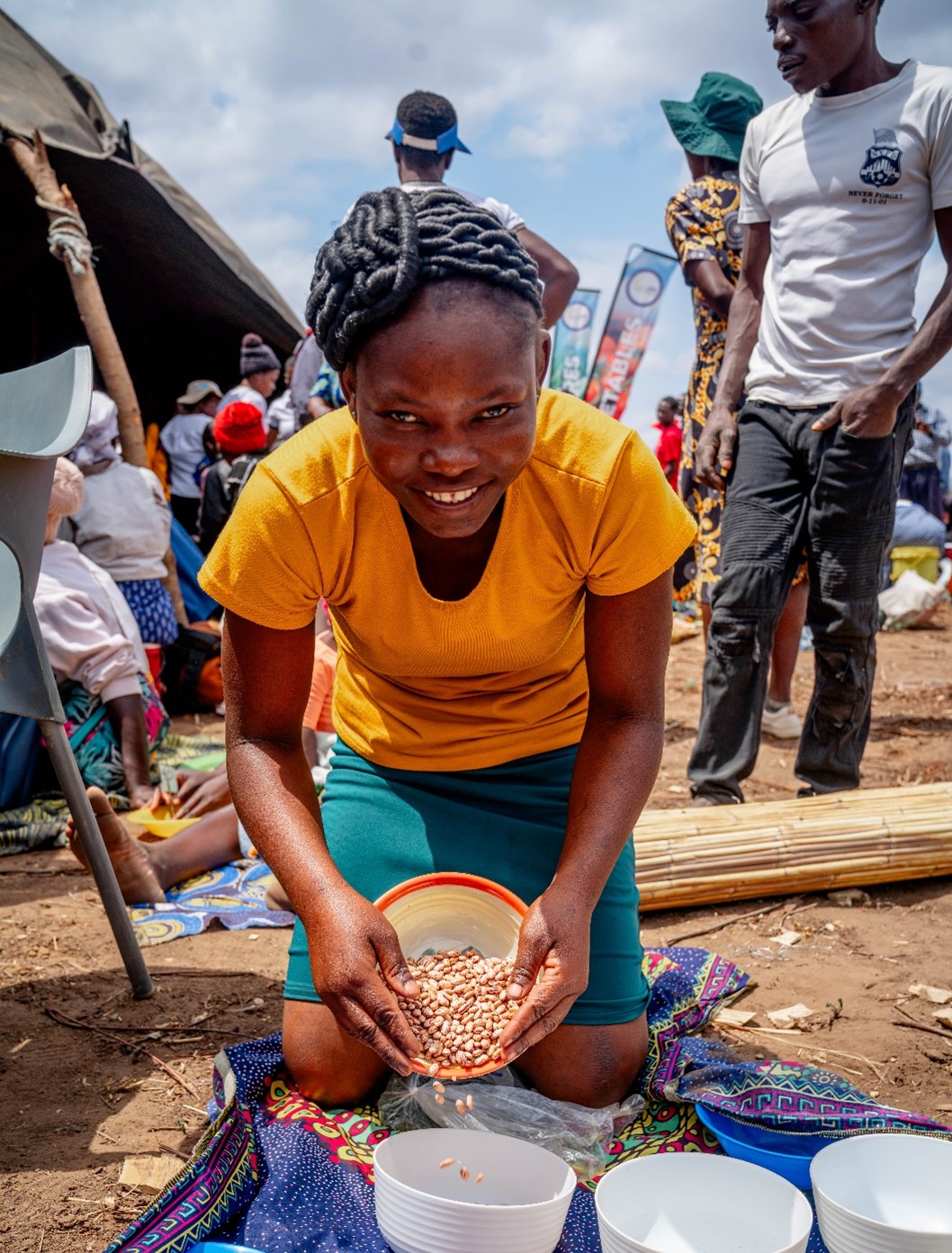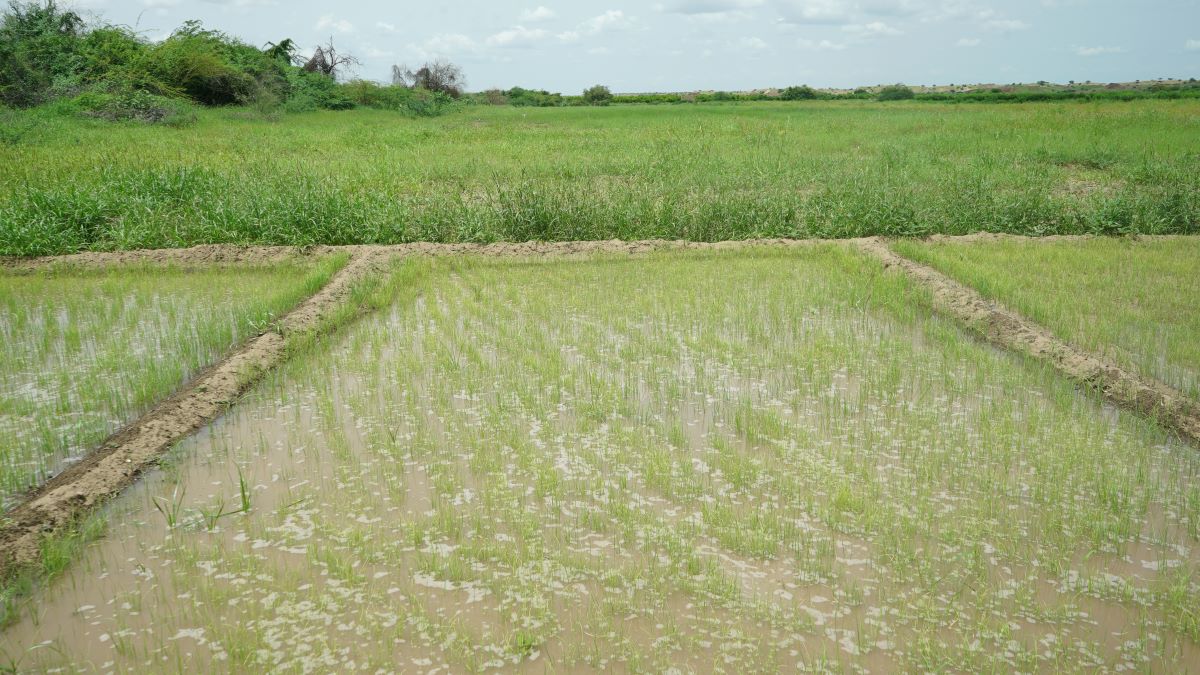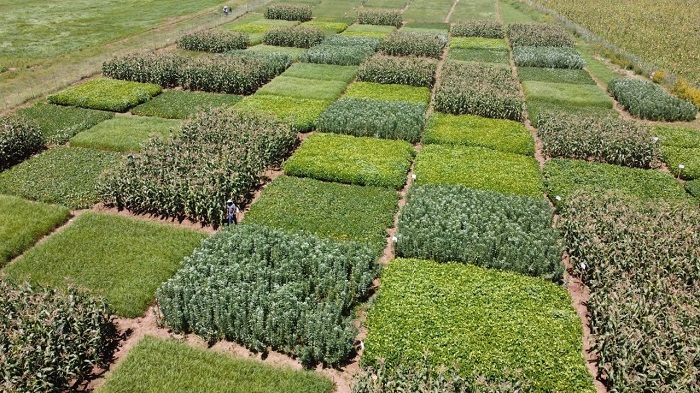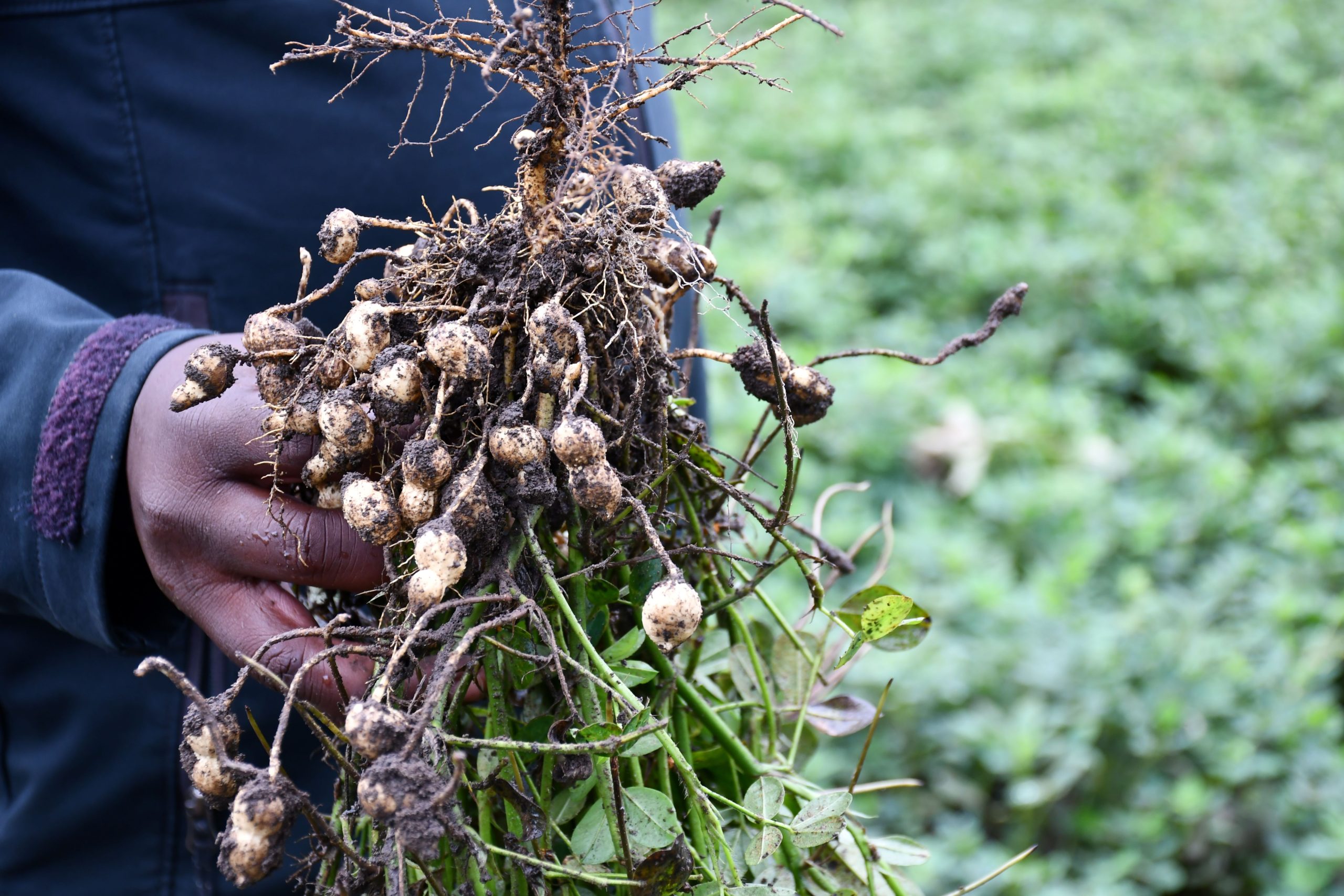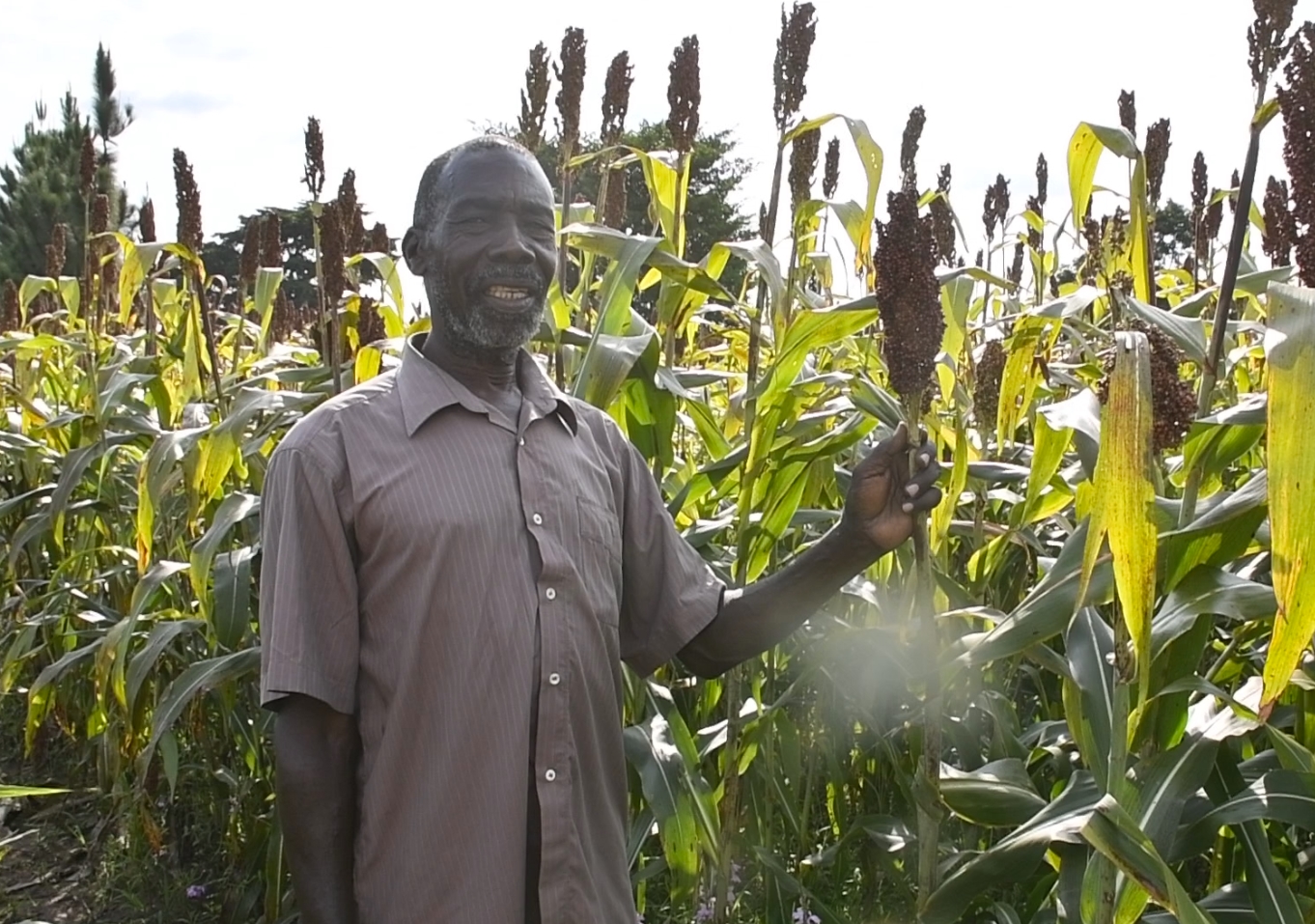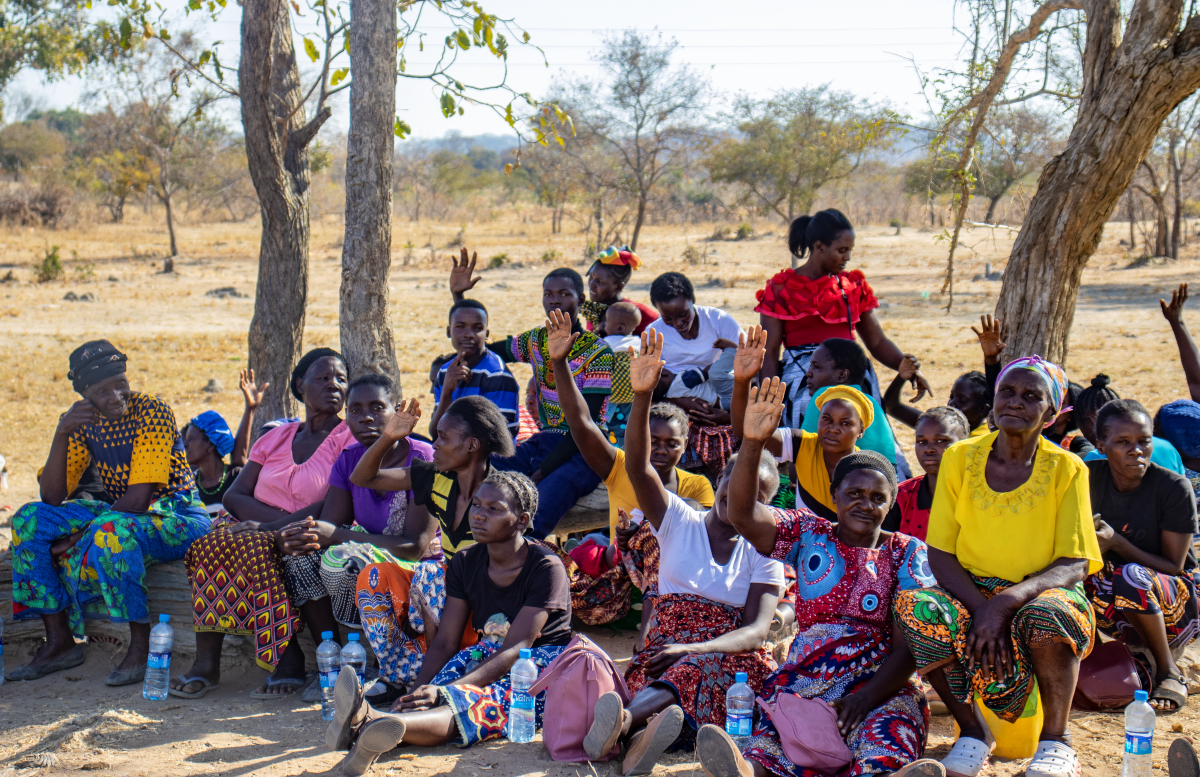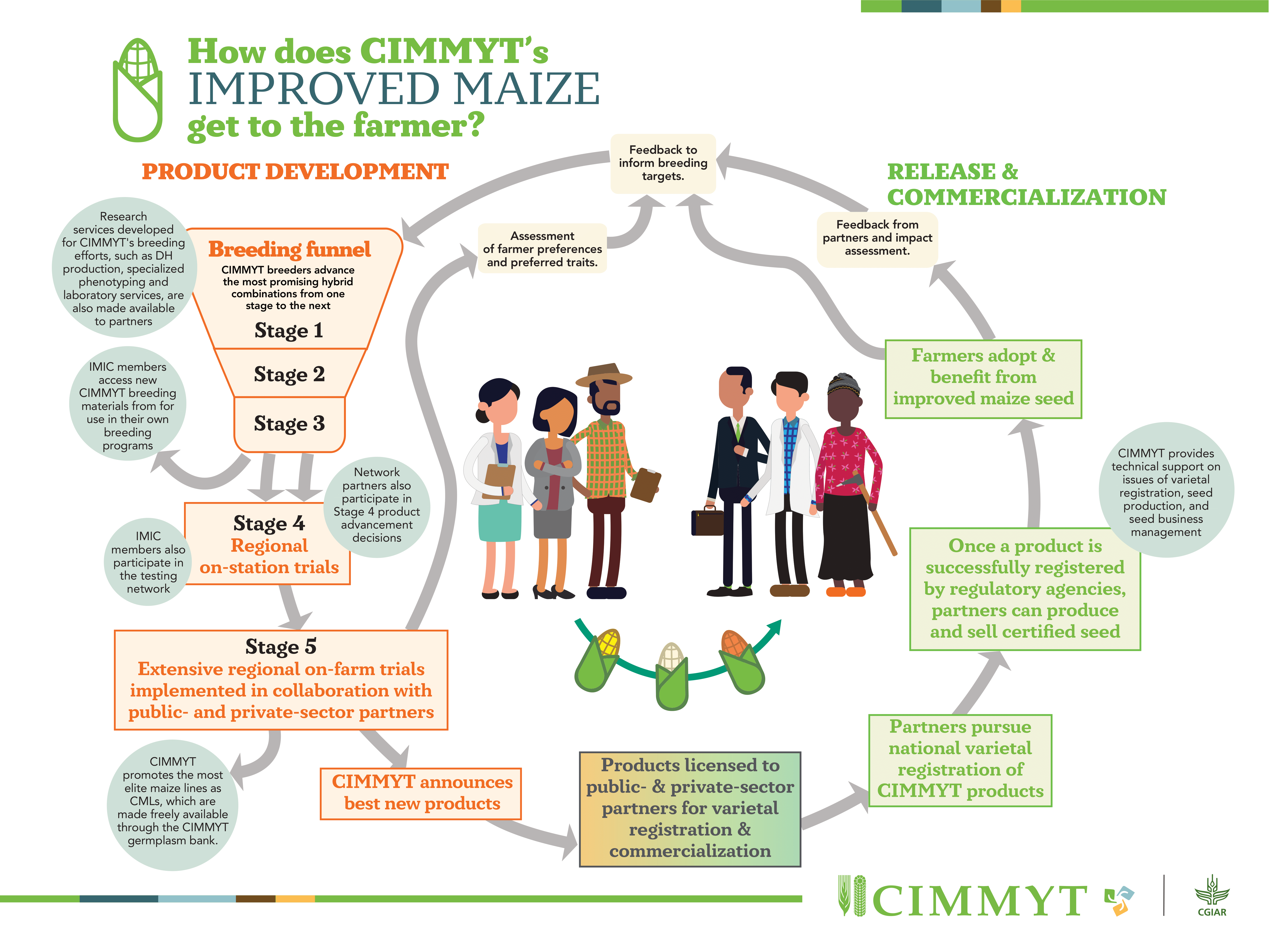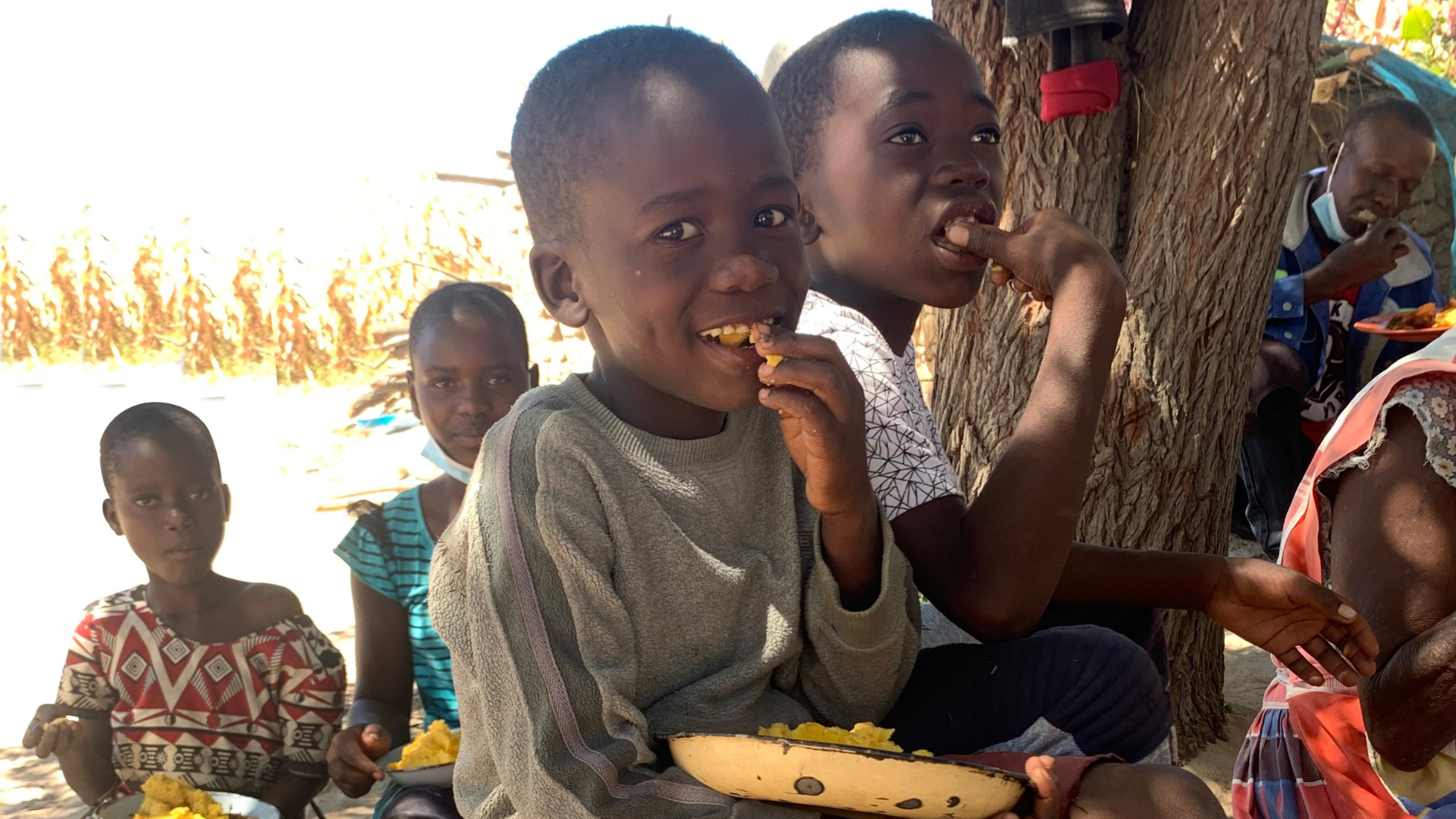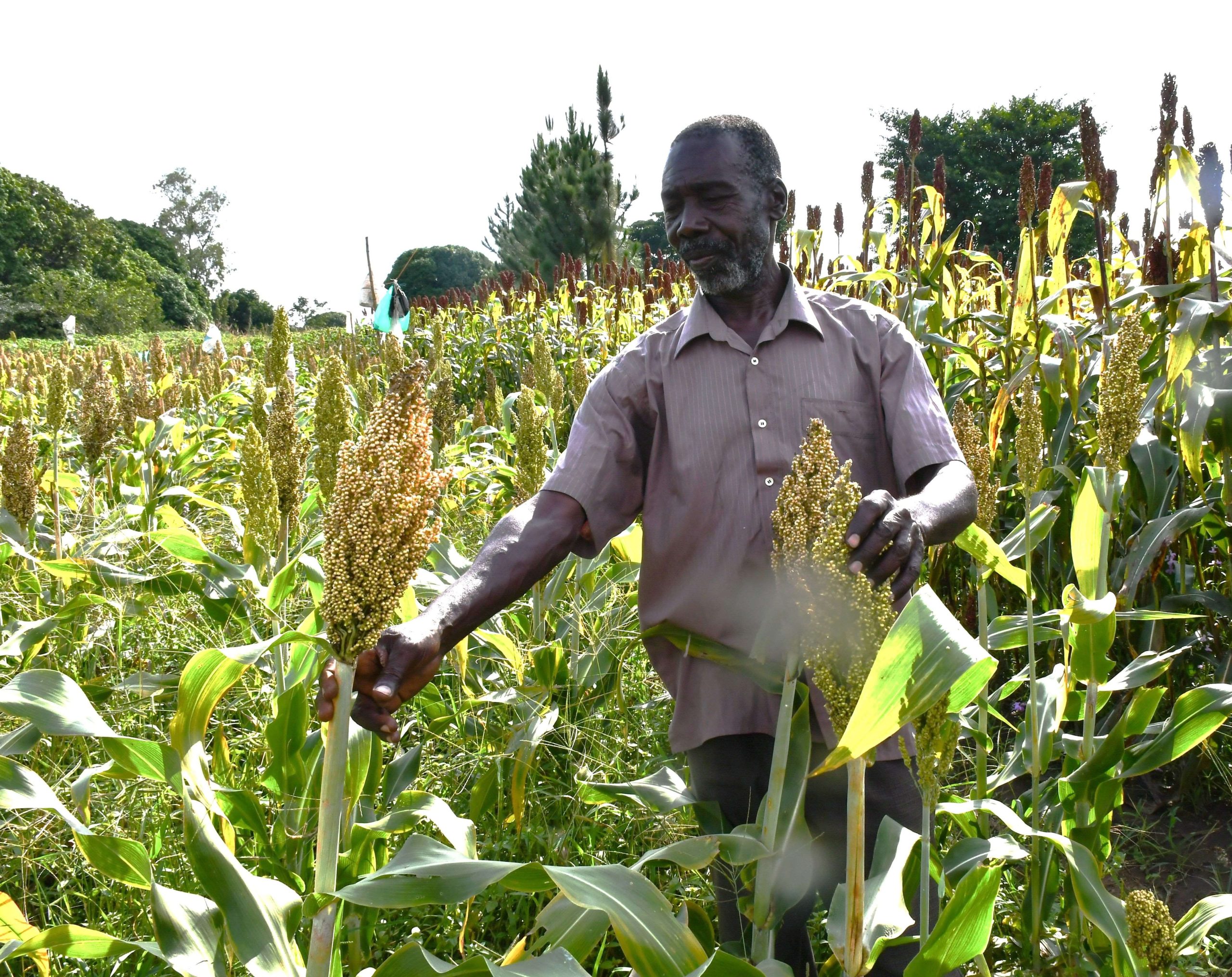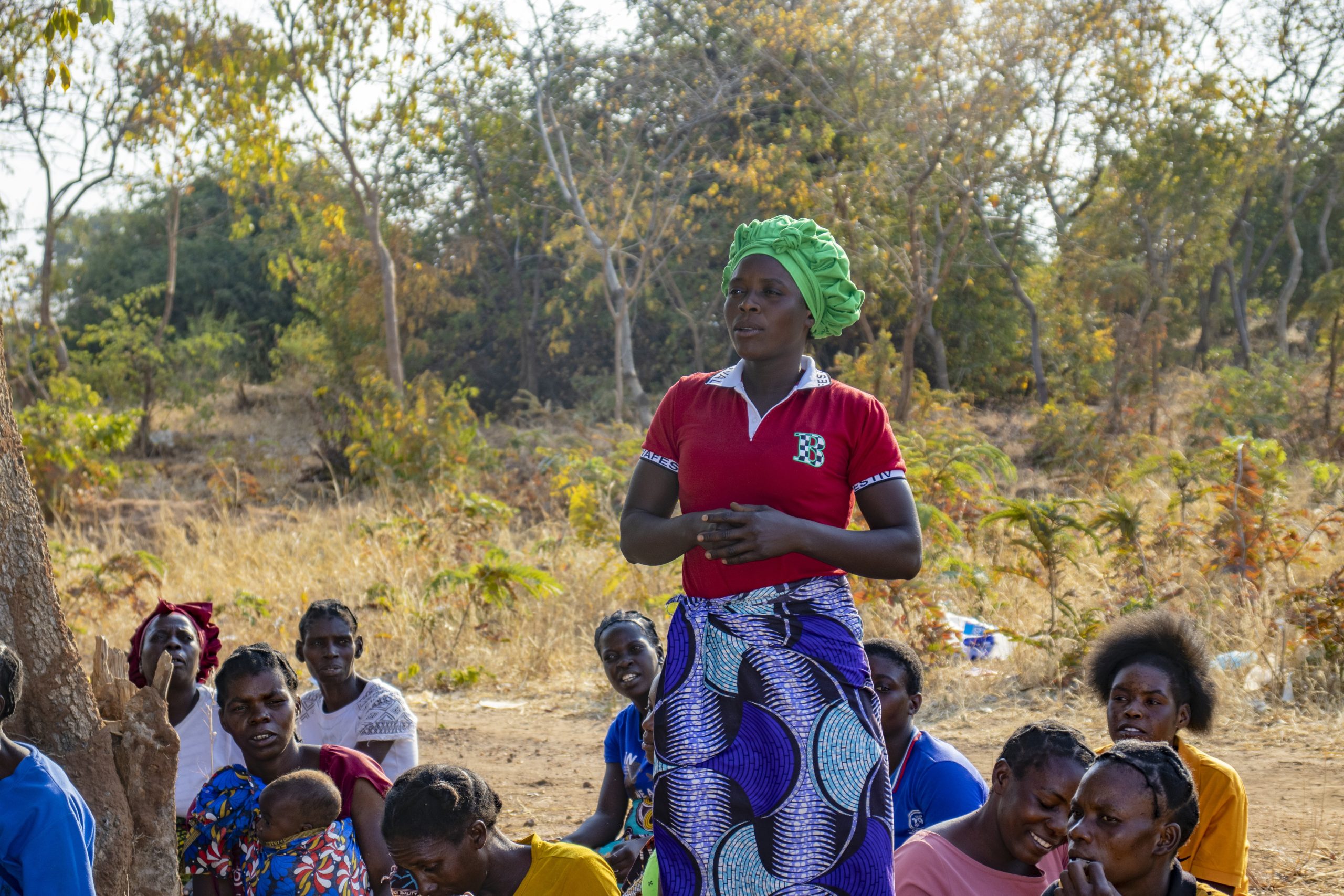Africa
CIMMYT’s work in Africa helps farmers access new maize and wheat systems-based technologies, information and markets, raising incomes and enhancing crop resilience to drought and climate change. CIMMYT sets priorities in consultation with ministries of agriculture, seed companies, farming communities and other stakeholders in the maize and wheat value chains. Our activities in Africa are wide ranging and include: breeding maize for drought tolerance and low-fertility soils, and for resistance to insect pests, foliar diseases and parasitic weeds; sustainably intensifying production in maize- and wheat-based systems; and investigating opportunities to reduce micronutrient and protein malnutrition among women and young children.
Advanced Training in Conservation Agriculture: Fostering Sustainable Agronomic Systems
 Capacity development
Capacity development
CIMMYT’s training on Conservation and Regenerative Agriculture empowered participants with climate-resilient farming practices to strengthen agrifood systems
Why early-stage on-farm sparse testing could be a game changer for crop breeding in Africa
 Climate adaptation and mitigation
Climate adaptation and mitigation
Early-stage on-farm testing tailors crop breeding to the realities of smallholder farmers, increasing efficiency and impact.
Promoting mechanized farming technologies in Mbire and Murewa through the Agroecology Fairs
 Capacity development
Capacity development
Scaling access to mechanization through local service providers and innovative financing models, CIMMYT is empowering smallholder farmers in Zimbabwe to enhance productivity, reduce labor, and create new livelihood opportunities
Beyond Survival: Thriving through solar innovation and empowerment in Sudan
 Capacity development
Capacity development
As Sudan grapples with the dual crises of conflict and climate change, solarization offers a scalable solution with multiple benefits. Its potential to empower women, engage youth, and strengthen public-private partnerships positions it as a cornerstone for sustainable agricultural development
Protected: Vision for Adapted Crops and Soils (VACS)
There is no excerpt because this is a protected post.
How one farmer is learning and leading the way in improved millet and groundnut seed production in Uganda
 Innovations
Innovations
Through access to drought-tolerant and disease-resistant crop varieties, Dennis Obua transformed a handful of seeds into a thriving farm, inspiring an entire community to embrace resilient farming practices
Farmer trials with improved seeds to promote seed production and improve local farming practices
 Capacity development
Capacity development
In Uganda’s Bukedea District, Nelson Ekurutu, with CIMMYT’s support, is testing improved crops to help farmers boost yields and build resilience through better seeds and practices
Atubandike: Breaking down gender barriers in Zambia’s agricultural advisory services
 Gender equality, youth and social inclusion
Gender equality, youth and social inclusion
How Atubandike is breaking barriers in Zambia’s agricultural advisory services by equipping women as digital champions and fostering gender equity through community-driven solutions that challenge entrenched stereotypes
In Zimbabwe, Women Are Leading the Battle Against Climate Change
 Climate adaptation and mitigation
Climate adaptation and mitigation
Source: Inter Press Agency ()
CIMMYT supports Zimbabwean women farmers with climate-smart practices to build resilience and sustainability
Five New CIMMYT maize hybrids available from Southern Africa Breeding Program
 Innovations
Innovations
CIMMYT announces the release of five new, improved tropical maize hybrids for licensing, offering drought tolerance, high yield, and resistance to key diseases, tailored to enhance productivity in stress-prone agroecologies of Southern Africa
Navigating the seed market and transforming agricultural productivity
 Innovations
Innovations
AgriNet connects farmers with improved seeds, processes grains for diverse markets, and collaborates with CIMMYT and NaSARRI to align research with market needs and boost agricultural productivity
Climate Change and Child Malnutrition in Zimbabwe: Evidence to Action
 Climate adaptation and mitigation
Climate adaptation and mitigation
Transforming Farming in Uganda: The journey of four farmers and their demonstration plots
 Dryland Crops
Dryland Crops
Demonstration plots in Uganda showcase improved crops, inspiring farmers to adopt resilient varieties and boost food security
Conservation Agriculture Transforming Farming in Southern Africa
 Climate adaptation and mitigation
Climate adaptation and mitigation
Source: Inter Press Service ()
CIMMYT advances conservation agriculture in Southern Africa, boosting yields, soil health, and livelihoods through climate-smart practices and innovation
How Atubandike dialogues are redefining gender and youth inclusion in Zambian agriculture
 Gender equality, youth and social inclusion
Gender equality, youth and social inclusion
CIMMYT’s Atubandike initiative empowers women and youth in Zambia, promoting inclusivity and resilience in agriculture through dialogue and capacity building.
